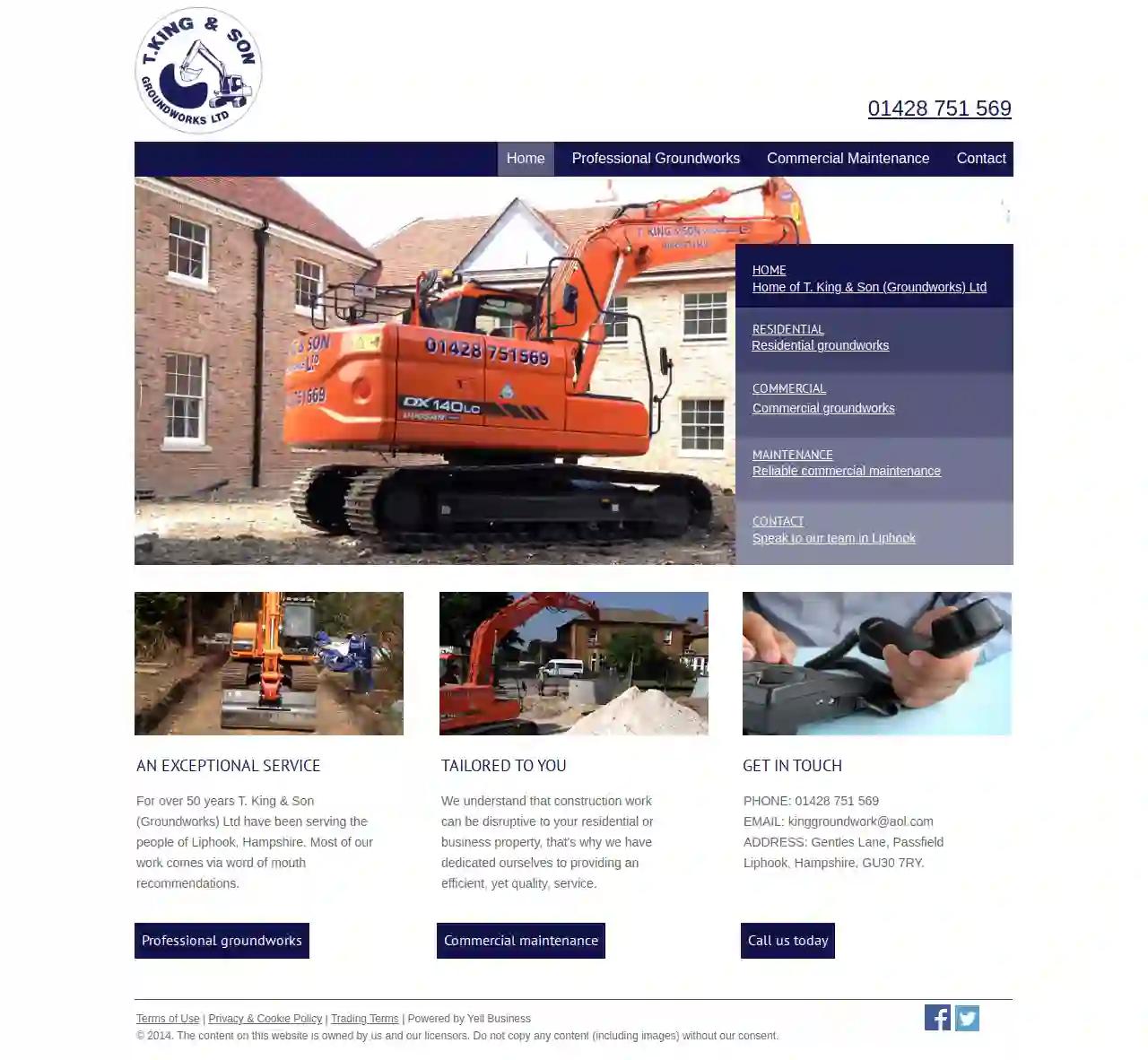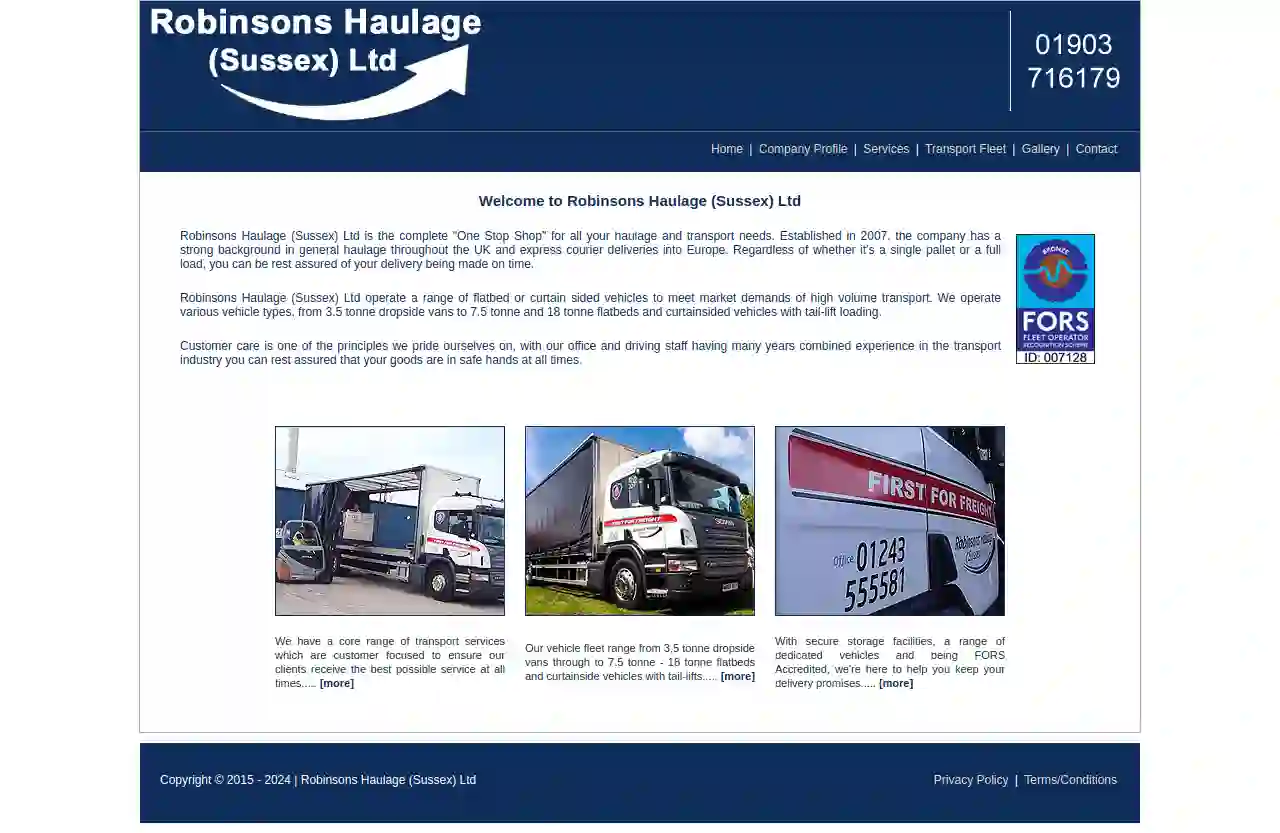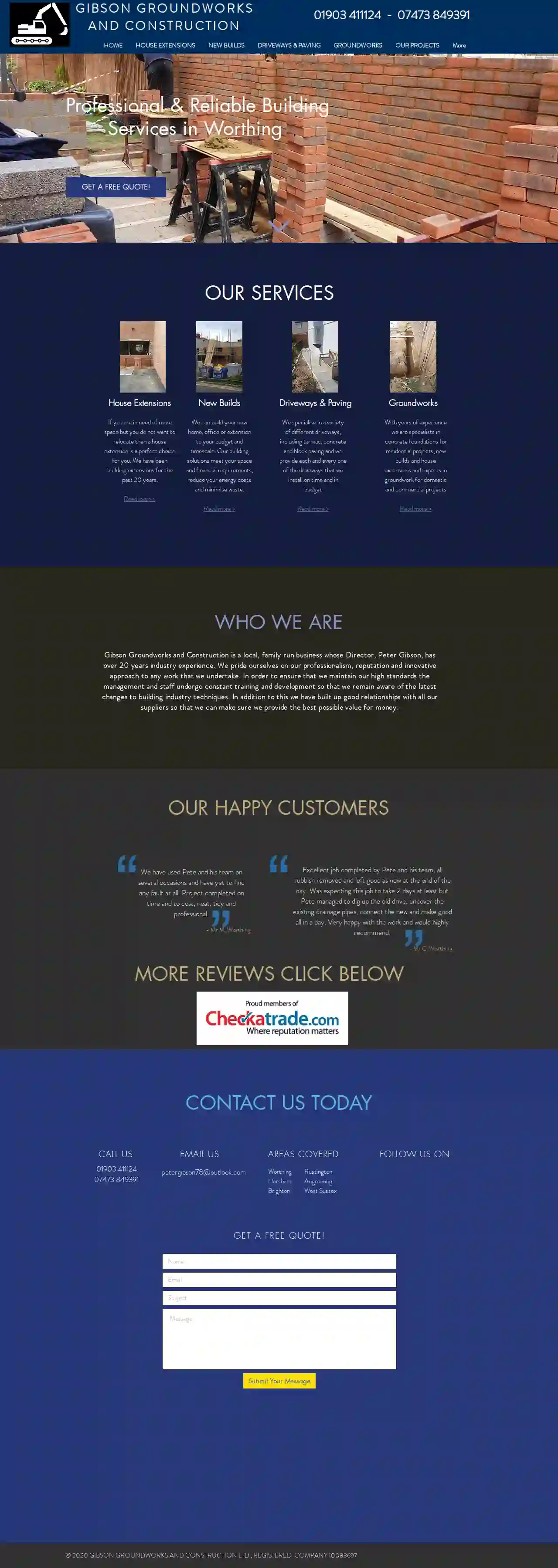Demolition Contractors Bognor Regis
Find Structure Demolition in Bognor Regis
Receive up to 3 Demo Contractors quotes for your project today! Compare profiles, reviews, accreditations, portfolio, etc... and choose the best offer.

Central Plant Hire
4.937 reviewsHolmbush Farm, Crawley Road, Holmbush Farm Crawley Road Faygate Horsham West Sussex, Horsham, RH12 4SE, GBCentral Plant Hire is a leading provider of plant and digger hire in West Sussex and Surrey. We offer a wide range of equipment to suit all your needs, from mini diggers to dumpers and attachments. We are committed to providing our customers with the highest quality equipment and service. Our team is experienced and knowledgeable, and we are always happy to answer your questions. We offer competitive rates and flexible hire options to suit your budget. We are proud to be a local business, and we are committed to supporting our community. We are a member of the Construction Industry Federation (CIF) and we are fully insured.
- Services
- Why Us?
- Accreditations
- Gallery
Get Quote
T King & Son Groundwork Ltd
1Gentles Lane, Passfield, Liphook, GU30 7RY, GBT. King & Son (Groundworks) Ltd: Your Trusted Groundworks Partner in Hampshire For over 50 years, T. King & Son (Groundworks) Ltd has been a leading provider of groundworks services in Liphook, Hampshire. We've built a strong reputation for delivering exceptional quality and efficiency, earning the trust of countless satisfied customers. Our commitment to excellence is evident in every project we undertake, from residential to commercial groundworks and maintenance. We understand that construction work can be disruptive, which is why we prioritize minimizing disruption and delivering projects on time and within budget. Our team of skilled professionals is dedicated to providing a seamless and hassle-free experience for our clients. Whether you're building your dream home, expanding your business, or need reliable commercial maintenance, T. King & Son (Groundworks) Ltd is your trusted partner. We're committed to exceeding your expectations and delivering results that stand the test of time.
- Services
- Why Us?
- Gallery
Get Quote
Arundels Construction
54 reviews13 The Cape, Littlehampton, West Sussex, BN17 6PL, GBArundels Construction Ltd Based in West Sussex, Arundels Construction Ltd has built a lasting reputation as a company of general and new home builders. With high-end services and an attractive pricing policy that can’t be beaten by any of our competitors, we transform properties in Bognor Regis, Chichester, Worthing and locations across the surrounding areas. About Arundel Builders With a sizeable portfolio of repeat customers who trust our general and new home builders completely, Arundels Construction Ltd will deliver a stress-free project to exceed your expectations. The procurement of quality materials from a trusted supplier network, coupled with our ability to take on installation and electrical work, has seen our company build a first-class reputation for its standards of workmanship and approach to superior customer service. We carry the required liability insurances, offer guarantees of between 15 and 25 years on our completed work, and have a perfect “10” rating on the Checkatrade website where our own customers review our projects. What Sets Us Apart Where we differ from other builders is in our ability to manage a project from the design stage all the way through to completion. Arundels Construction Ltd can include architectural work, engineering calculations and private building inspections in your package, which we adapt to your personal requirements.
- Services
- Why Us?
- Testimonials
- Gallery
Get Quote
Horsham Landscaping Specialists
551 reviewsHorsham, GBAbout Us Horsham Landscaping Specialists was founded by our owner, James. With over a decade of experience in the industry, James possesses a deep passion and keen eye for detail when it comes to garden design and construction. Our entire company is built upon a team with a strong work ethic and a shared passion for landscaping, always striving to deliver the highest quality results. This dedication has fueled our rapid growth, allowing us to assemble a team of dedicated landscapers serving both residential and commercial clients across the UK. Based in the Surrey Hills, Horsham, we proudly serve customers in the local and surrounding areas, including Crawley, Haywards Heath, Kilwood Vale, Billingshurst, Gatwick, London, Brighton, and Worthing. We undertake all aspects of hard landscaping, including retaining walls, patios, driveways (block, loose stone, resin), decking, and specialize in artificial grass.
- Services
- Why Us?
- Our Team
- Testimonials
- Gallery
Get Quote
Robinsons Haulage Sussex Ltd
4.913 reviewsArea 3, Bairds Business Park, Hobbs New Barn, Bairds Business Park Hobbs New Barn Gravetts Lane, Climping West Sussex, Climping, BN17 5RX, GBAbout Robinsons Haulage (Sussex) Ltd Robinsons Haulage (Sussex) Ltd is a well-established haulage and transport company, founded in 2007. We've built a strong reputation for providing reliable and efficient services throughout the UK and Europe. Whether you need to move a single pallet or a full load, you can trust us to deliver on time and with the utmost care. We've grown from a single 3.5 tonne van to a fleet of vehicles ranging from 3.5 tonne dropside vans to 7.5 tonne and 18 tonne flatbeds and curtainsided vehicles with tail-lift loading. This allows us to cater to a wide range of transport needs, ensuring we have the right vehicle for every job. Customer satisfaction is at the heart of everything we do. Our team, with years of combined experience in the transport industry, is dedicated to providing exceptional service. We take pride in our commitment to safety and security, ensuring your goods are in safe hands at all times. We're proud to be FORS (Bronze) Accredited, demonstrating our commitment to safety, efficiency, and environmental responsibility. Our experienced and well-trained staff are committed to providing our clients with the highest level of service, keeping them informed every step of the way.
- Services
- Why Us?
- Accreditations
- Gallery
Get Quote
Dancy Building Contractors Limited
55 reviewsUnit 1, The Old Dairy, Steyning, BN44 3DZ, GBDancy Building Contractors: Modern Building, Traditional Values Dancy Building Contractors is a reputable and experienced building company based in Steyning, West Sussex. We are committed to delivering high-quality building services with a focus on traditional values and modern construction techniques. Our team of skilled professionals is dedicated to providing exceptional craftsmanship and customer service, ensuring your project is completed to the highest standards. We understand that building projects can be complex and require careful planning and execution. That's why we take a collaborative approach, working closely with our clients to understand their needs and vision. We provide clear communication, transparent pricing, and a commitment to delivering projects on time and within budget. Whether you're planning a home extension, loft conversion, or a complete new build, Dancy Building Contractors has the expertise and experience to handle your project with confidence. We are proud of our reputation for quality, reliability, and customer satisfaction. Contact us today to discuss your building project and let us help you bring your vision to life.
- Services
- Why Us?
- Gallery
Get Quote
Gibson Groundworks & Construction Ltd
32 reviewsWorthing, GBWHO WE ARE Gibson Groundworks and Construction is a local, family run business whose Director, Peter Gibson, has over 20 years industry experience. We pride ourselves on our professionalism, reputation and innovative approach to any work that we undertake. In order to ensure that we maintain our high standards the management and staff undergo constant training and development so that we remain aware of the latest changes to building industry techniques. In addition to this we have built up good relationships with all our suppliers so that we can make sure we provide the best possible value for money. OUR HAPPY CUSTOMERS We have used Pete and his team on several occasions and have yet to find any fault at all. Project completed on time and to cost, neat, tidy and professional. - Mr M, Worthing Excellent job completed by Pete and his team, all rubbish removed and left good as new at the end of the day. Was expecting this job to take 2 days at least but Pete managed to dig up the old drive, uncover the existing drainage pipes, connect the new and make good all in a day. Very happy with the work and would highly recommend. - Mr C, Worthing
- Services
- Why Us?
- Testimonials
- Gallery
Get Quote
JATA Construction (South East Division) LTD
11b Paardeberg Road, Bodmin, PL31 1EY, GBResolute precision Your journey towards a perfect future begins with us. Precision isn’t just a buzzword in our vocabulary… It’s ingrained in every nail hammered and every brick laid We don’t just build structures; we forge relationships, collaborating with you every step of the way. At JATA, compromise isn’t in our dictionary but collaboration is. We promise unparalleled value, delivering nothing short of first-rate craftsmanship. With a seasoned team of highly skilled tradesmen, we waste no time in turning your dreams into realities. Challenges? We devour them and thrive on producing pragmatic, no-nonsense, solutions. We create, one resolute step at a time.
- Services
- Why Us?
- Accreditations
- Testimonials
- Gallery
Get Quote
Ayling Groundworks & Plant Hire
51 reviewsThe Studio Office, Magnolias, Church Lane, Yapton, Arundel, West Sussex, BN18 0EH, GBAyling Groundworks: Your Trusted Partner for Groundworks and Civil Engineering Ayling Groundworks, established in 2012 and based in Arundel, West Sussex, is your one-stop shop for all your groundworks and civil engineering needs. We specialize in foundation, drainage, and landscaping works across multiple construction sectors throughout the South East. With over 35 years of experience in the construction industry, we've built a strong reputation for delivering high-quality workmanship, exceptional reliability, and professional project management. We are committed to continuous improvement, investing in new plant and technology while upholding our core values of prioritizing high health and safety standards in everything we do. Whether you're a homeowner, developer, or commercial client, we have the expertise and resources to handle your project from start to finish. Our team of skilled professionals is dedicated to providing you with the best possible service and exceeding your expectations.
- Services
- Why Us?
Get Quote
Stonehouse Groundworks Ltd
52 reviewsLancaster’s farm, Littleworth lane, Lancaster’s farmLittleworth lanePartridge greenHorsham, Horsham, RH13 8EJ, GBWelcome to Stonehouse Groundworks & Construction Stonehouse Construction Services is a highly reputable and well established groundworks company providing a comprehensive groundworks, civil engineering and demolition service to commercial, industrial and private customers throughout the South East. Started by Jake Lovelock, Stonehouse Groundworks Ltd was trading from 2004 and incorporated in 2007. At Stonehouse Groundworks & Construction Ltd all plant is owned and maintained by ourselves, giving us flexibility to deal with any size project in house. Our trained staff draw on years of experience within the industry. At Stonehouse Groundworks & Construction Ltd holds comprehensive £10M public liability insurance, giving all clients peace of mind.
- Services
- Why Us?
- Accreditations
- Gallery
Get Quote
Over 11,537+ Excavation Pros registered
Our excavation contractors operate in Bognor Regis & beyond!
ExcavationHQ has curated and vetted Top Excavation Pros in Bognor Regis. Find a reliable pro today.
Frequently Asked Questions About Demolition Contractors
- Dust Suppression: Use water spraying, misting systems, or other dust suppression techniques to control airborne particles.
- Noise Barriers: Erect temporary noise barriers around the demolition site to reduce noise transmission to nearby properties.
- Work Schedule: Schedule noisy demolition activities during permitted hours to minimize disturbance to neighbors.
- Communication: Keep neighbors informed about the demolition schedule and any potential disruptions.
- Implosion: Using explosives to collapse a structure inwards rapidly. Suitable for large buildings in open areas.
- Wrecking Ball: Swinging a large steel ball to impact and break down the structure. Effective for bringing down walls and other solid elements.
- High-Reach Demolition: Utilizing specialized excavators with extended arms and demolition attachments for dismantling tall structures piece by piece.
- Selective Demolition: Removing specific parts of a building while preserving other sections. Often used in renovation projects.
- Deconstruction: Carefully dismantling a building to salvage reusable materials, reducing waste and environmental impact.
- Feasibility Studies: Assessing the viability and challenges of a demolition project.
- Demolition Planning: Developing demolition plans, including method selection, sequencing, and safety procedures.
- Permitting Assistance: Navigating the demolition permitting process and ensuring compliance with regulations.
- Hazardous Material Surveys: Identifying and managing hazardous materials, such as asbestos and lead paint.
- Cost Estimating: Providing accurate cost estimates for demolition services.
- Project Management: Overseeing the demolition process and ensuring it proceeds as planned.
- 'Can I see proof of your licensing and insurance?' Verify their credentials and coverage.
- 'What experience do you have with projects like mine?' Ensure they have relevant expertise.
- 'Can you provide references from past clients?' Check their reputation and customer satisfaction.
- 'What are your safety protocols?' Prioritize contractors who emphasize safety.
- 'How will you handle hazardous materials?' Ensure they have proper procedures for asbestos or lead abatement.
- 'What is your timeline for completing the project?' Understand the project duration.
- 'How will you manage noise, dust, and debris?' Discuss mitigation measures for minimizing disruption.
- 'What are your payment terms?' Clarify payment schedules and any required deposits.
How can I minimize the dust and noise from demolition?
What are the different types of demolition?
What is the role of a demolition consultant?
What questions should I ask a demolition contractor before hiring them?
How can I minimize the dust and noise from demolition?
- Dust Suppression: Use water spraying, misting systems, or other dust suppression techniques to control airborne particles.
- Noise Barriers: Erect temporary noise barriers around the demolition site to reduce noise transmission to nearby properties.
- Work Schedule: Schedule noisy demolition activities during permitted hours to minimize disturbance to neighbors.
- Communication: Keep neighbors informed about the demolition schedule and any potential disruptions.
What are the different types of demolition?
- Implosion: Using explosives to collapse a structure inwards rapidly. Suitable for large buildings in open areas.
- Wrecking Ball: Swinging a large steel ball to impact and break down the structure. Effective for bringing down walls and other solid elements.
- High-Reach Demolition: Utilizing specialized excavators with extended arms and demolition attachments for dismantling tall structures piece by piece.
- Selective Demolition: Removing specific parts of a building while preserving other sections. Often used in renovation projects.
- Deconstruction: Carefully dismantling a building to salvage reusable materials, reducing waste and environmental impact.
What is the role of a demolition consultant?
- Feasibility Studies: Assessing the viability and challenges of a demolition project.
- Demolition Planning: Developing demolition plans, including method selection, sequencing, and safety procedures.
- Permitting Assistance: Navigating the demolition permitting process and ensuring compliance with regulations.
- Hazardous Material Surveys: Identifying and managing hazardous materials, such as asbestos and lead paint.
- Cost Estimating: Providing accurate cost estimates for demolition services.
- Project Management: Overseeing the demolition process and ensuring it proceeds as planned.
What questions should I ask a demolition contractor before hiring them?
- 'Can I see proof of your licensing and insurance?' Verify their credentials and coverage.
- 'What experience do you have with projects like mine?' Ensure they have relevant expertise.
- 'Can you provide references from past clients?' Check their reputation and customer satisfaction.
- 'What are your safety protocols?' Prioritize contractors who emphasize safety.
- 'How will you handle hazardous materials?' Ensure they have proper procedures for asbestos or lead abatement.
- 'What is your timeline for completing the project?' Understand the project duration.
- 'How will you manage noise, dust, and debris?' Discuss mitigation measures for minimizing disruption.
- 'What are your payment terms?' Clarify payment schedules and any required deposits.